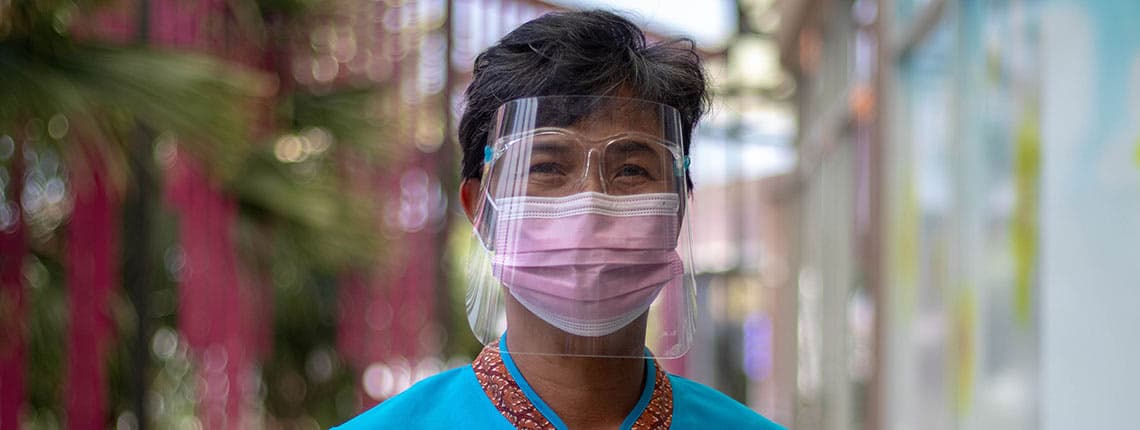I am Panisara Adiraklarpnukul, a 59-year-old Thai Massage Therapist in Bangkok. I am a member of the Massage Therapist Group Thailand, which organizes informally online.
Massage therapists are required to have close contact with customers. Therefore, we were ordered to stop working before other occupations during the pandemic, and we started working again only after other occupations. If the outbreak starts again, we will definitely receive orders prohibiting us from working again.
Most massage therapists’ customers are foreign tourists. When tourists couldn’t come, many massage therapists lost their jobs. They had to change their occupations. Some started selling goods at the market or sewing clothes, while others provided massages at home or worked in factories. Those with some money would take a sewing or hairdressing class.
The government’s relief measure was a 3-month 5,000 Baht cash handout. While it was useful, not everyone got it because some did not register properly or they did not have a device or a phone that they could use to register. HomeNet came and provided knowledge that I could use to further my work. I gained knowledge, put it to use, taught my therapist friends, and applied the knowledge at my shop.
During lockdown, massage therapists were not able to work at all, but now we are back to working normally. Our disease prevention measures are wearing face masks, frequently washing hands, keeping a distance and reducing the number of beds in the shop in strict compliance with the government’s recommendations.
There are many groups of massage therapists. We are not organized formally, but only communicate with each other via Facebook. During COVID-19, all massage therapists were in a very difficult situation; they had no work, no accommodation, no money, and no food. So we sought help from Khun Pitak and Khun Koi, the owners of Jarawee Thai Massage. Although they were also affected, they proceeded to file complaints and asked for help from government agencies and politicians, and asked the public for the donation of survival bags. They also coordinated with HomeNet Thailand to request dry food and survival bags to alleviate the distress of massage therapists.
Later on, HomeNet organized a workshop on making natural products and chemical-free farming and massage therapists participated. This was the first time that massage therapists gathered, stayed, ate, and did other activities together. During the time we were together, apart from doing various activities together, we created a Line messaging group to discuss and share our problems with one another. After the activities ended, we continued to talk, help each other, and give recommendations to our massage therapist friends.
I want massage therapists to gather and organize as much as we can to ensure our demands have momentum. We have 300,000 registered massage therapists, but we have never organized formally. If we could organize, we would have the power to help each other. When we want to make demands to the government, we will be heard more.
Panisara Adiraklarpnukul was interviewed for WIEGO’s COVID-19 Crisis and the Informal Economy Study. HomeNet Thailand is a WIEGO partner.
Photo: Panisara Adiraklarpnukul at work. Credit: Pattarapon Virat
